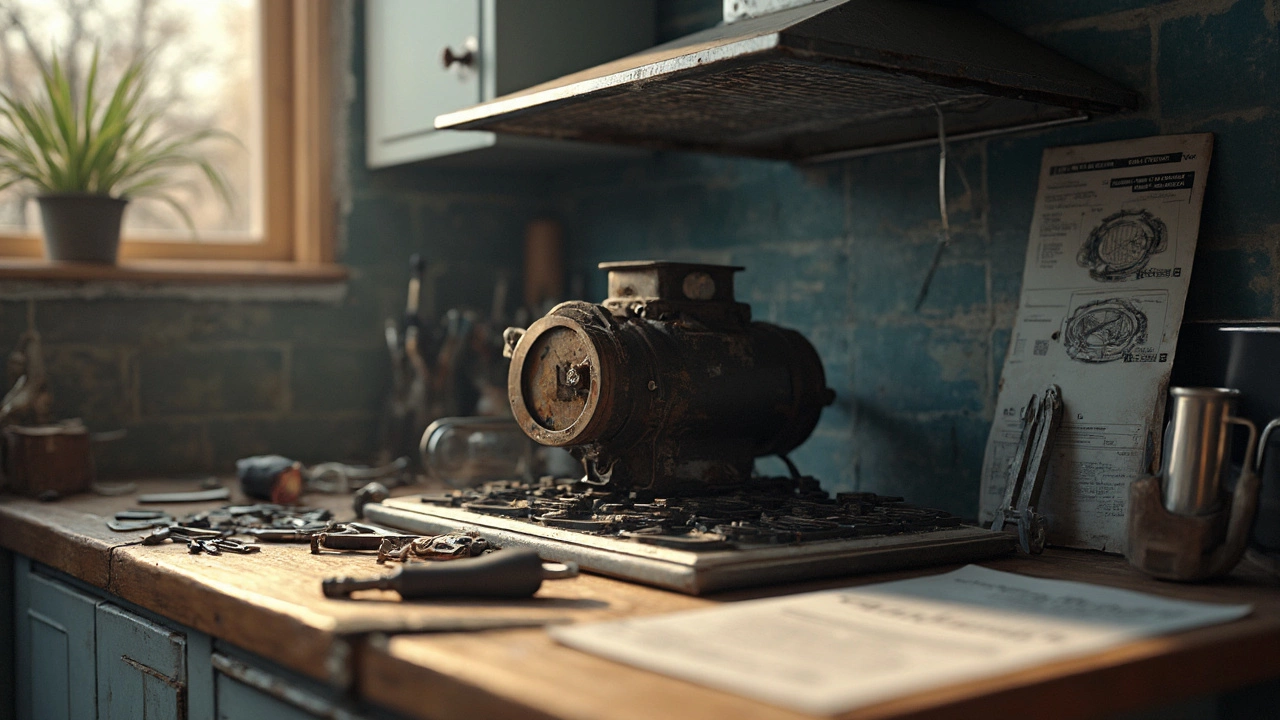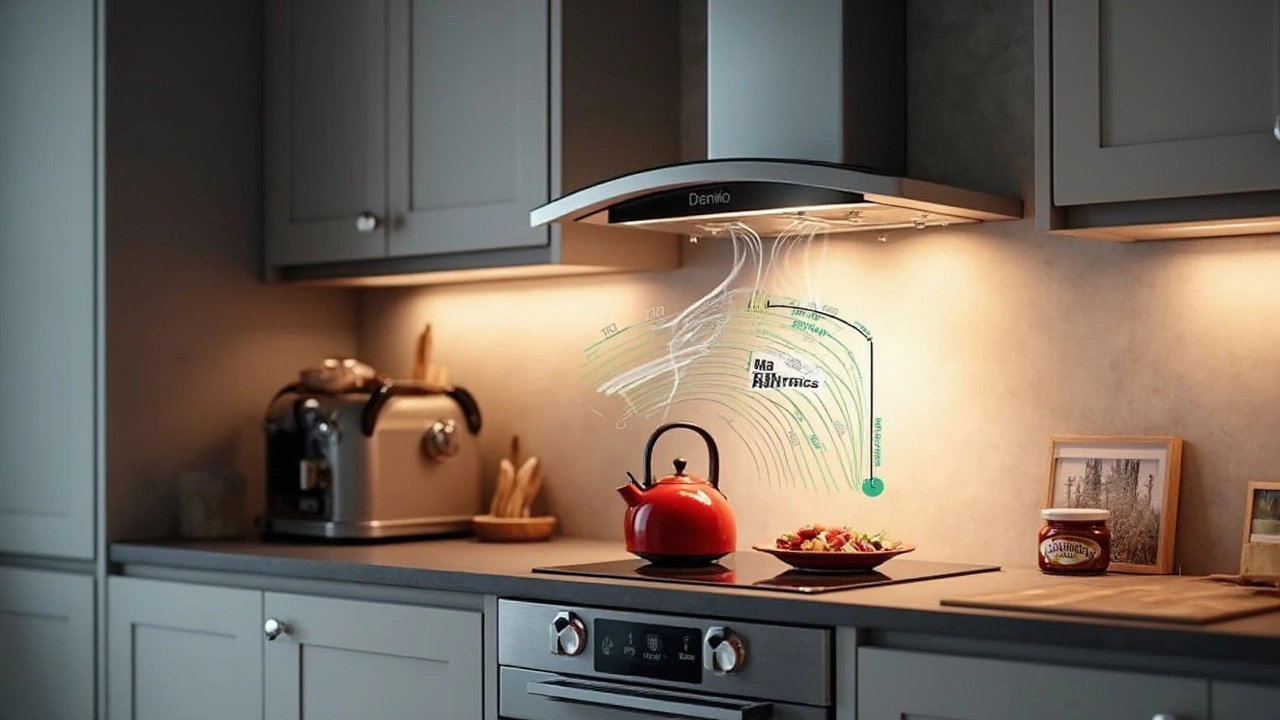If your kitchen or bathroom fan is humming, rattling, or just won't turn on, you’re not alone. Most homeowners face a fan issue at least once a year, and the good news is many of those problems can be solved without a pricey call‑out. In this guide we’ll walk through the most common reasons fans fail, show you step‑by‑step DIY fixes, and tell you when it’s smarter to let a professional take over.
First, figure out what’s actually wrong. A noisy fan usually means something is loose or the motor bearings are wearing out. A fan that won’t start at all could be a blocked vent, a burnt‑out motor, or a faulty power switch. Here are the top three culprits:
Quickly checking these three areas will often point you to the right fix.
1. Turn the power off. Safety first – flip the circuit breaker or unplug the unit. You don’t want a surprise shock.
2. Clean the fan. Remove the grill (usually a few screws or clips), then wipe the blades with a damp cloth. Use a vacuum with a brush attachment to clear dust from the duct and motor housing. A clean fan runs cooler and quieter.
3. Inspect the motor. Look for obvious signs of wear: burnt marks, loose wires, or a wobbling shaft. If the bearings feel gritty when you spin the motor by hand, it’s time for a replacement motor or a whole new fan unit.
4. Test the capacitor. Many extractor fans use a small capacitor to give the motor a boost at start‑up. A multimeter set to “capacitance” will tell you if it’s still good. If the reading is way off, replace the capacitor – they’re cheap and easy to swap.
5. Re‑assemble and test. Put the grill back on, restore power, and listen. If the fan runs smoothly, you’ve saved a call‑out. If it still stutters or won’t start, you’ve likely hit a motor failure.
When the motor is dead, you have two options: replace just the motor (if you can find a compatible one) or replace the whole fan assembly. Most modern fans are designed for quick “snap‑in” replacement, so you won’t need any special tools.
If you’re unsure about any electrical step, or the fan continues to act up after these fixes, it’s wise to call a qualified technician. At Bognor Regis Appliance Repair Experts we’ve seen every fan fault under the sun and can get a stubborn unit back in shape fast.
Remember, regular maintenance – a quick clean every few months – stops most fan problems before they start. A clean fan means lower energy bills, better indoor air quality, and a quieter home.

Thinking about swapping out the motor in your extractor fan? This article breaks down what's really involved, the red flags that mean the motor's cooked, and how to decide if you should tackle it yourself or call in a pro. It covers how to find the right replacement part, tips to avoid shocking mistakes, and why some fans just aren’t worth fixing. Whether your bathroom fan wheezes or your kitchen extractor hums like a jet, here’s how to handle a motor on its last legs.

Trying to figure out if you need a ventilation fan or an extractor fan? This article breaks down the differences between the two, explains how each one works, and shares tips for choosing and maintaining the right fan for your home. You’ll also pick up advice on recognizing issues, making easy repairs, and knowing when it's time to replace. If you’ve got problems with humidity, bad smells, or stuffy air, this guide is for you.

Choosing the right extractor fan can be a tricky task with so many options on the market. This guide breaks down key factors like fan types, sizes, noise levels, and energy efficiency to help you make an informed decision. We dive into tips on proper sizing and essential features to look for. Find maintenance tips and tricks to keep your fan running smoothly. Equip yourself with the knowledge you need to ensure a wise investment.

Not sure how to keep your extractor fan running smoothly? This guide breaks down the simple steps to service an extractor fan, covering cleaning, inspecting parts, and spotting potential issues. Regular maintenance can extend the life of your fan and ensure your kitchen stays fresh and ventilated. Discover some handy tips and tricks to make this an easy task. No need to call in a professional; you can handle this yourself with a little guidance.

Keeping your home well-ventilated is essential, and extractor fans play a crucial role in maintaining air quality. Whether you're installing a new fan or repairing an old one, it's important to know who to call. Professional electricians and specialized ventilation technicians are the go-to experts. They ensure fans are properly installed and functioning efficiently, saving you from potential hassles down the road.

A reliable heat pump is essential for maintaining comfort in your home. Some signs indicate that your heat pump might need replacing, such as increased energy bills, inconsistent temperatures, strange noises, old age, and frequent repairs. Understanding these warning signs can help you decide if it's time to invest in a new system.

Resetting a water heater might seem simple, but it involves precaution. This article delves into when and why a reset might be necessary and explores the safety considerations involved. Learn about common signs that indicate a reset is due and the correct way to carry out this task. Discover the underlying causes of water heater issues to prevent future resets.

Ever wonder if switching your boiler on and off harms it? This article unpacks how boilers handle frequent power cycles, what really wears them out, and when switching off could save you cash or cause problems. Find out the best ways to run your boiler for both safety and savings. Practical tips and real facts—all in plain English. Avoid costly repairs by knowing how to treat your boiler right.

Boilers, integral to any home heating system, don't last forever. Understanding their lifespan can help you plan timely maintenance and replacements to ensure efficient heating. In this article, we explore how long you can expect your boiler to serve you, what affects its longevity, and how regular care can make a difference. By understanding these aspects, homeowners can make informed decisions regarding their heating needs and avoid unexpected failures.

Curious if you can fix your dishwasher without calling a pro? This article breaks down the most common dishwasher problems and explains which repairs you can actually do yourself. We’ll cover how complicated these appliances really are, how to figure out what’s wrong, the tools you’ll need, and which jobs might leave you better off calling an expert. Get practical tips, interesting facts, and a clear picture of what you’re actually signing up for before grabbing that toolbox.